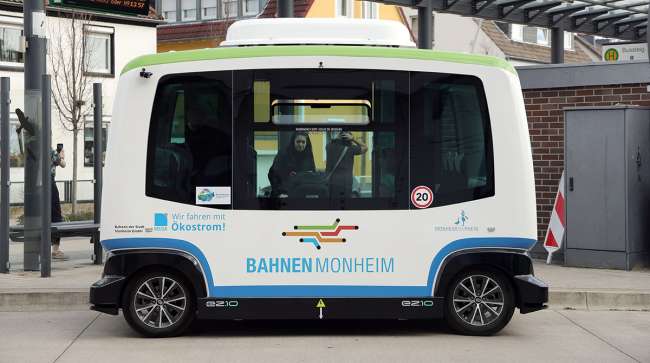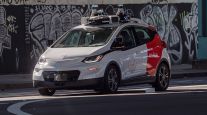Bloomberg News
Germany Takes Step Toward Autonomous Driving on Public Roads

[Stay on top of transportation news: Get TTNews in your inbox.]
German lawmakers agreed to allow some driverless vehicles on public roads, a first step toward enabling autonomous driving in Europe’s biggest economy.
Lawmakers in the lower house of parliament adopted legislation enabling automated driving under some conditions. The bill, approved late May 20, cites scenarios including small buses and logistics vehicles that can shuttle passengers and goods along pre-determined routes.

Next-level technologies hold the potential to enhance safety and efficiency in transportation, but it takes a lot of work behind the scenes to advance these ideas from concept to reality. We talk with Christoph Mertz of the Robotics Institute at Carnegie Mellon and Huei Peng of the University of Michigan. Hear a snippet above, and get the full program by going to RoadSigns.TTNews.com.
“This is the world’s first legal framework for autonomous driving in regular operation,” Ulrich Lange, a deputy leader of Chancellor Angela Merkel’s bloc in parliament, said in a statement May 21.
Germany is keen to catch up in the field of autonomous driving, a technology that could reshape the transport industry but is enormously complex and costly. The biggest advances so far have been made by Waymo and Cruise in the U.S. as well as Baidu Inc. in China.
The legislation allows for Level 4 autonomy — meaning a vehicle that can drive itself under certain conditions. For a car to qualify, Germany requires that a human is able to shut it down in case of issues, either by sitting inside it or accessing it remotely, according to the bill.
The German government expects projects next year. The upper house of parliament still needs to approve the legislation.
With assistance from Christoph Rauwald.
Want more news? Listen to today's daily briefing below or go here for more info:




